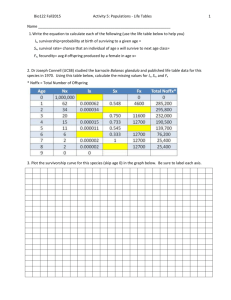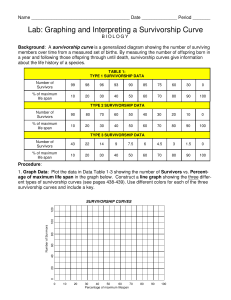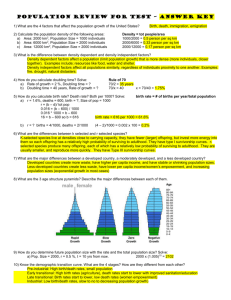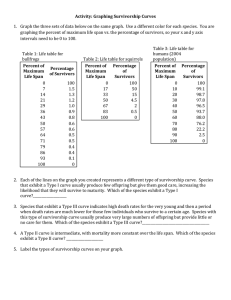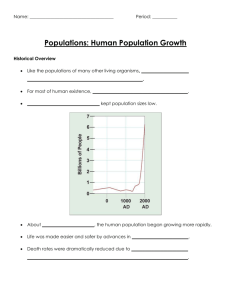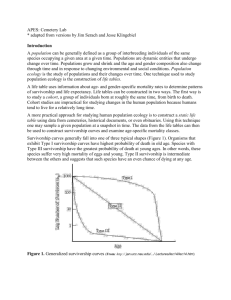Survivorship Curves: Graphing and Analysis Worksheet
advertisement
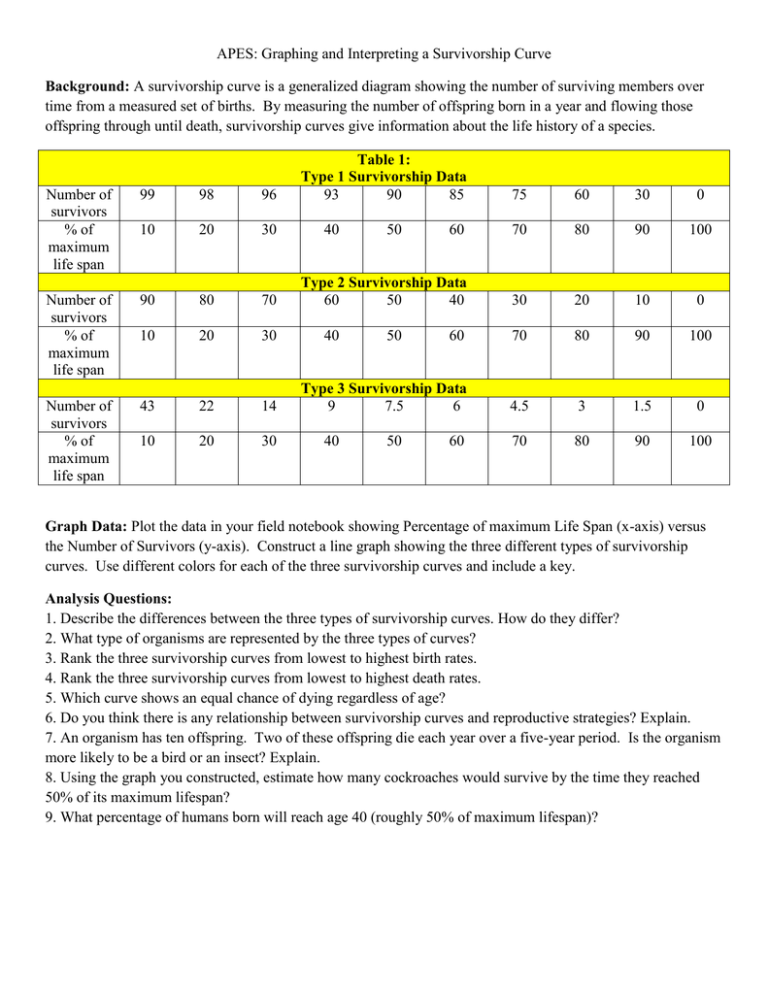
APES: Graphing and Interpreting a Survivorship Curve Background: A survivorship curve is a generalized diagram showing the number of surviving members over time from a measured set of births. By measuring the number of offspring born in a year and flowing those offspring through until death, survivorship curves give information about the life history of a species. Number of survivors % of maximum life span 99 98 96 10 20 30 Number of survivors % of maximum life span 90 80 70 10 20 30 Number of survivors % of maximum life span 43 22 14 10 20 30 Table 1: Type 1 Survivorship Data 93 90 85 75 60 30 0 60 70 80 90 100 Type 2 Survivorship Data 60 50 40 30 20 10 0 60 70 80 90 100 Type 3 Survivorship Data 9 7.5 6 4.5 3 1.5 0 70 80 90 100 40 40 40 50 50 50 60 Graph Data: Plot the data in your field notebook showing Percentage of maximum Life Span (x-axis) versus the Number of Survivors (y-axis). Construct a line graph showing the three different types of survivorship curves. Use different colors for each of the three survivorship curves and include a key. Analysis Questions: 1. Describe the differences between the three types of survivorship curves. How do they differ? 2. What type of organisms are represented by the three types of curves? 3. Rank the three survivorship curves from lowest to highest birth rates. 4. Rank the three survivorship curves from lowest to highest death rates. 5. Which curve shows an equal chance of dying regardless of age? 6. Do you think there is any relationship between survivorship curves and reproductive strategies? Explain. 7. An organism has ten offspring. Two of these offspring die each year over a five-year period. Is the organism more likely to be a bird or an insect? Explain. 8. Using the graph you constructed, estimate how many cockroaches would survive by the time they reached 50% of its maximum lifespan? 9. What percentage of humans born will reach age 40 (roughly 50% of maximum lifespan)?

